Tea is one of the most versatile drinks in the world, which has been rooted to many cultures reaching back to thousands of years. We are no stranger to a hot cup of tea on a rainy day, or an iced matcha latte when it’s hot outside. There are many types of tea with different functions, taste, and aroma. Along with the exquisite taste, tea benefits the body health and can improve your quality of life in many different ways.
However, what are the most health-enhancing properties that teas contain? Read on to know more about the top teas for our health.
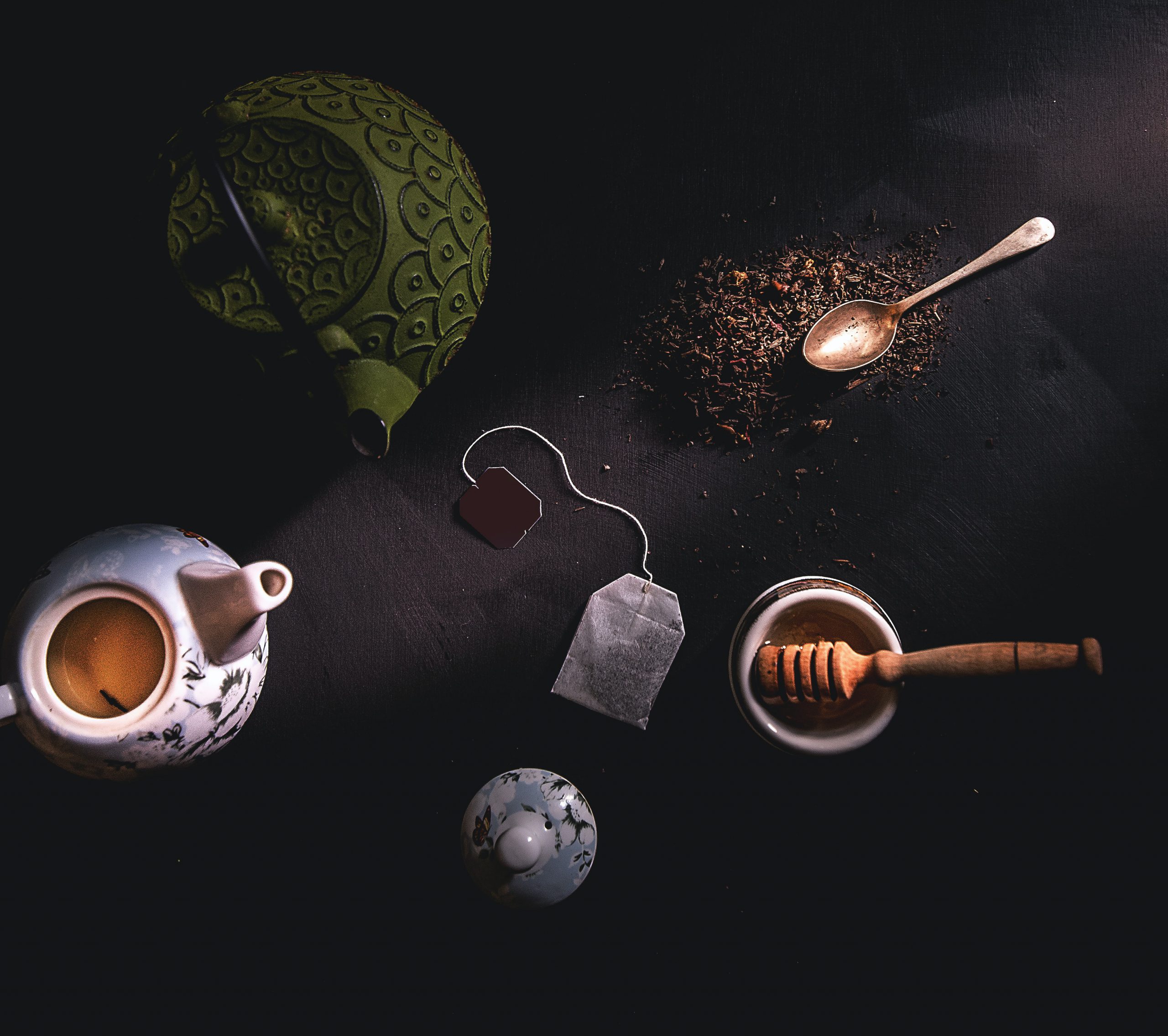
Most of the teas available in the market today (except flower & herbal teas) come from a particular species of plant called Camellia sinensis. It is cultivated in more than 30 countries around the world, and has become the second most consumed beverage in the world after water. Teas that are brewed from the Camellia sinensis plant contain lots of polyphenols (a substance that has antioxidant properties) and less caffeine than coffee. This makes tea a better choice for people who are trying to limit their caffeine intake, but still want an energy boost in the mornings.
To begin with, the antioxidant properties of tea polyphenols are linked to bounteous health benefits. Many studies believe that they have the ability to fight off inflammation, and help reduce your risk of cancer and cardiovascular disease. Furthermore, it has been found to aid in weight loss, together with moderate calorie deficit and regular exerciseNonetheless, it is important to note that teas should never be perceived as a “magic ingredient” that could make you shed pounds instantly, as many diet companies advertise them to be.
Popular Types
Each type of tea has its own unique aroma, taste, and health benefits. Here are the seven most popular types of tea from all over the world:
Green tea
Rich in antioxidants. Low caffeine content.
To turn Camellia sinensis leaves into green tea, it usually goes through many steps of steaming, pan-firing, and rolling before being dried up to stop oxidation from happening. This keeps the leaves unfermented so that the contents of EGCG (epigallocatechin gallate) —an antioxidant— are intact and not broken down in the process. Green tea is also rich in antibacterial properties and fluoride, both of which are potentially beneficial for your dental health.
Many experts also argue that drinking green tea regularly may be helpful to increase blood flow and lower cholesterol. It is also believed to be able to help regulate blood sugar for people with diabetes due its high catechin content —also an antioxidant.
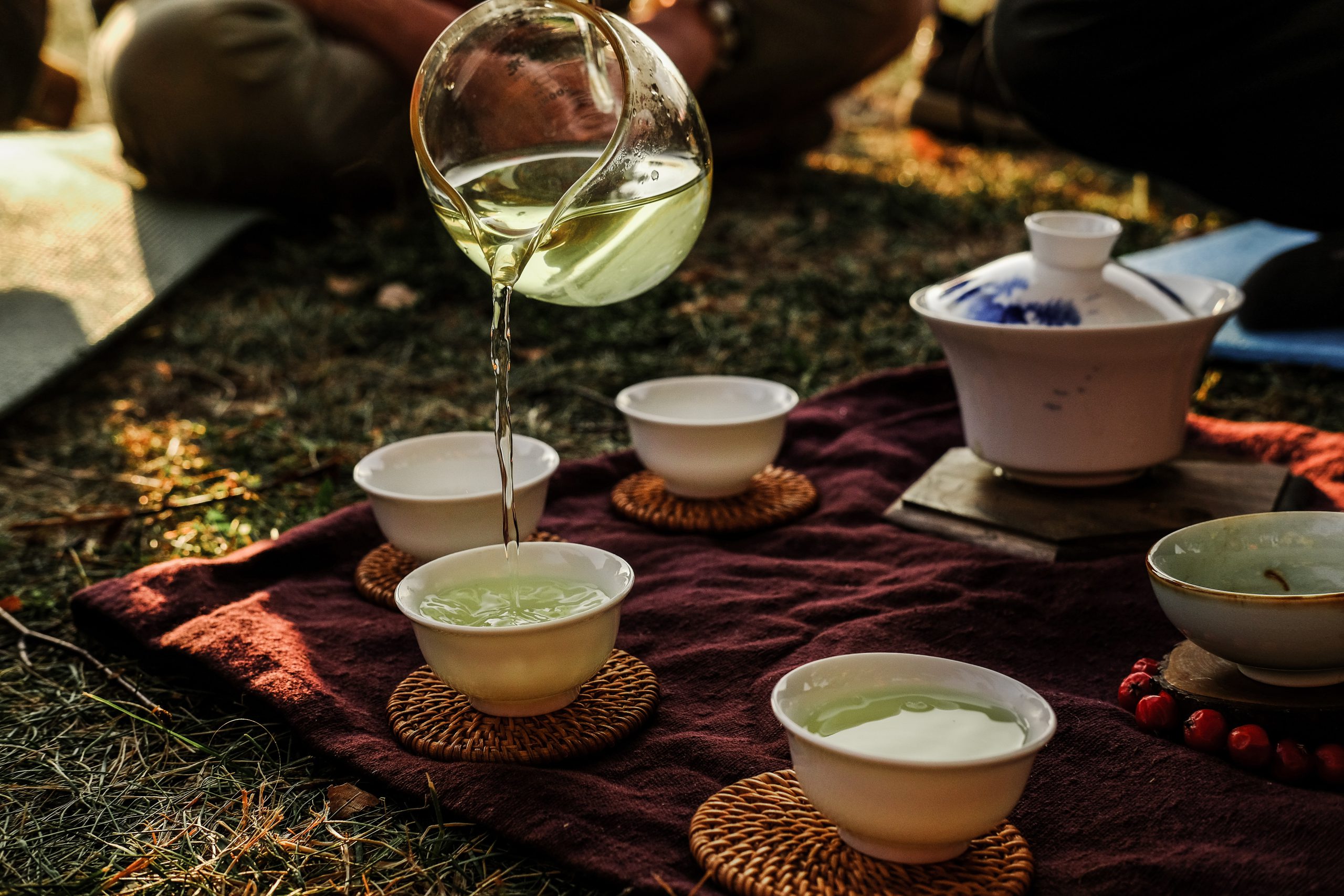
The most familiar varieties of green tea usually come from China (long jing, gunpowder, chun mee) and Japan (sencha, houjicha, gyokuro). Green tea is also utilized as the base for fruity tea blends, by pairing them with tangy fruits like lychee, orange, and mango.
Matcha is a powdered form of green tea originating from Japan. It has been very popular in recent years due to its unique taste and versatility. Not only could it be made into beverages, but also made into cakes, ice creams, macaroons, and other desserts.
Black tea
Rich in antioxidants. Highest caffeine content.
Even though black tea is also made from Camellia sinensis, the bold flavors and caffeine content is quite the opposite of green tea. It is due to the fact that in black teas, fermentation and oxidation are encouraged. This fermentation process causes black tea to produce the highest caffeine and theaflavin (a type of antioxidant) contents compared to other types of tea. Though black and green tea slightly differ in aroma and nutritional properties, they both still carry similar health benefits due to their richness in antioxidants.
If you want the health benefits of green tea but prefer a higher caffeine content to energize your mornings, then this is the right tea for you.
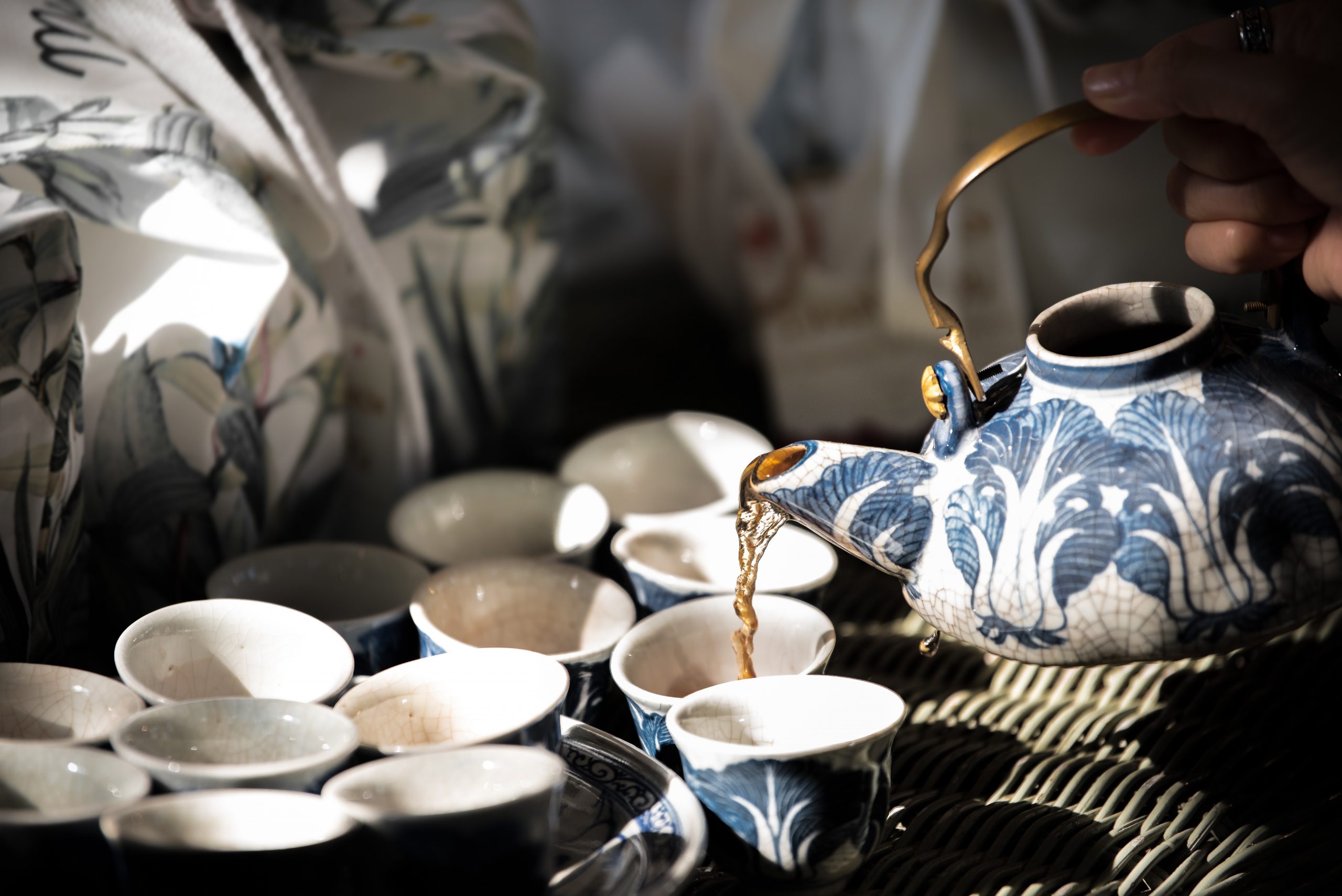
Black tea is the basis for many popular tea varieties we have in the market, such as: jasmine, chai, assam, darjeeling, earl gray, english breakfast, and dian hong cha. They’re also the backbone for the viral sweet drinks like bubble tea and thai milk tea. In culinary, black tea is used as dry rubs and made into dressing infusions.
Oolong tea
Just like black and green tea, oolong tea has similar health benefits since it is also rich in antioxidants. In fact, oolong tea contains a combination of antioxidant types existing in both black tea (theaflavins) and green tea (catechins). If you find yourself wanting the perfect balance between black and green tea, it’s recommended to try drinking oolong tea. Just like black tea, the Camellia sinensis leaves in Oolong tea are also allowed to be fermented, but only partially. Depending on the intensity of fermentation, the taste comes in a very diverse spectrum of flavors.
Popular varieties: phoenix, wuyi, high mountain, jin xuan
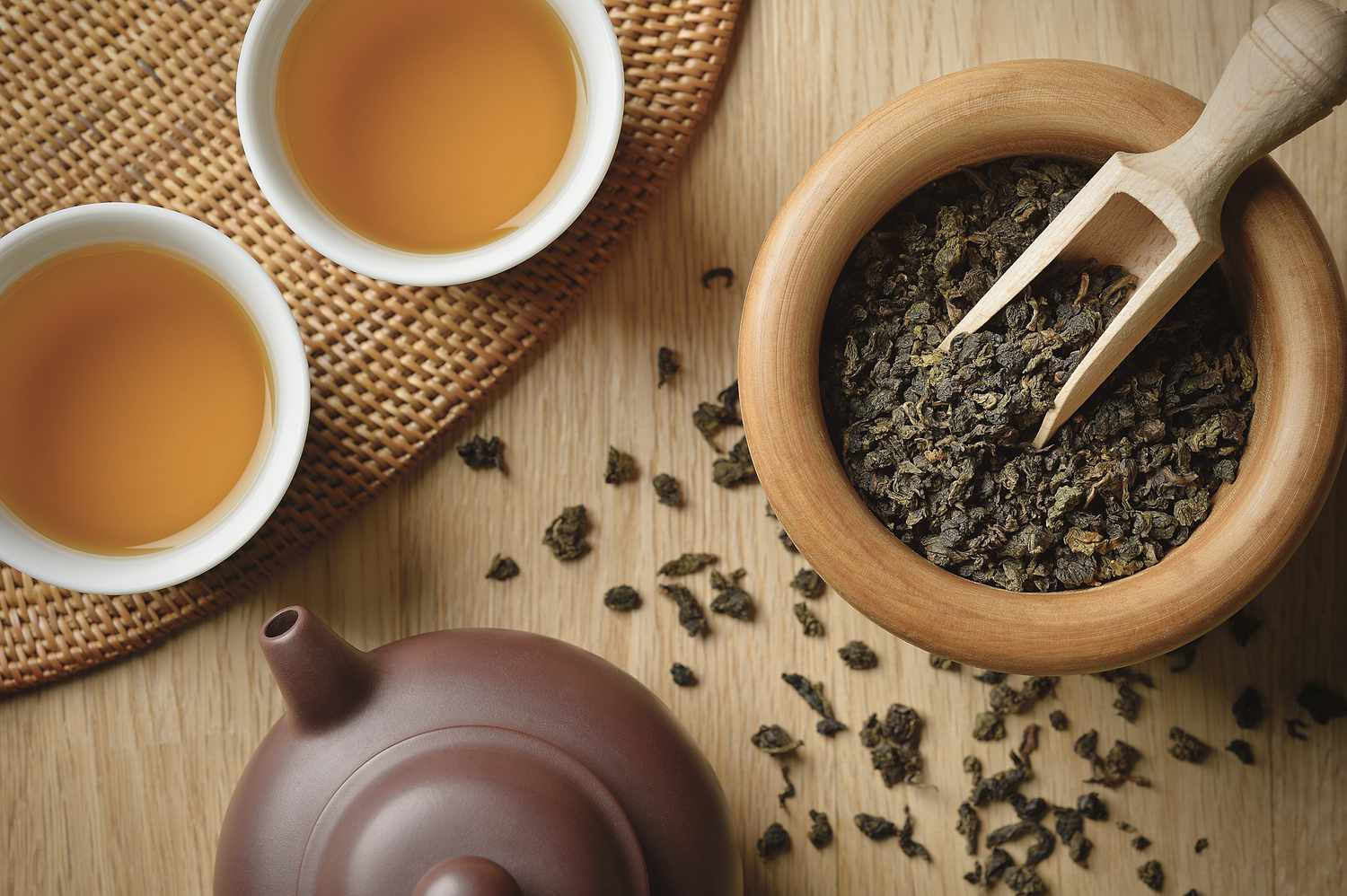
White tea
Calming. Promotes focus & alertness. Richest in antioxidants.
White tea is made from young, unopened buds of Camellia sinensis, so its taste is mellow, almost resembling sweetness. Compared to green, black, and oolong tea, white tea has the most potent antioxidant and L-theanine content because it goes through the least amount of processing. Antioxidants are popular for their anti-inflammatory properties. L-theanine is known for its multifunctional ability to promote not only calmness, but also focus and alertness. White tea has very little caffeine content, so this is definitely the tea for you if you love to drink tea but are trying to limit your caffeine intake.
Popular varieties: silver needle, white peony, da bai
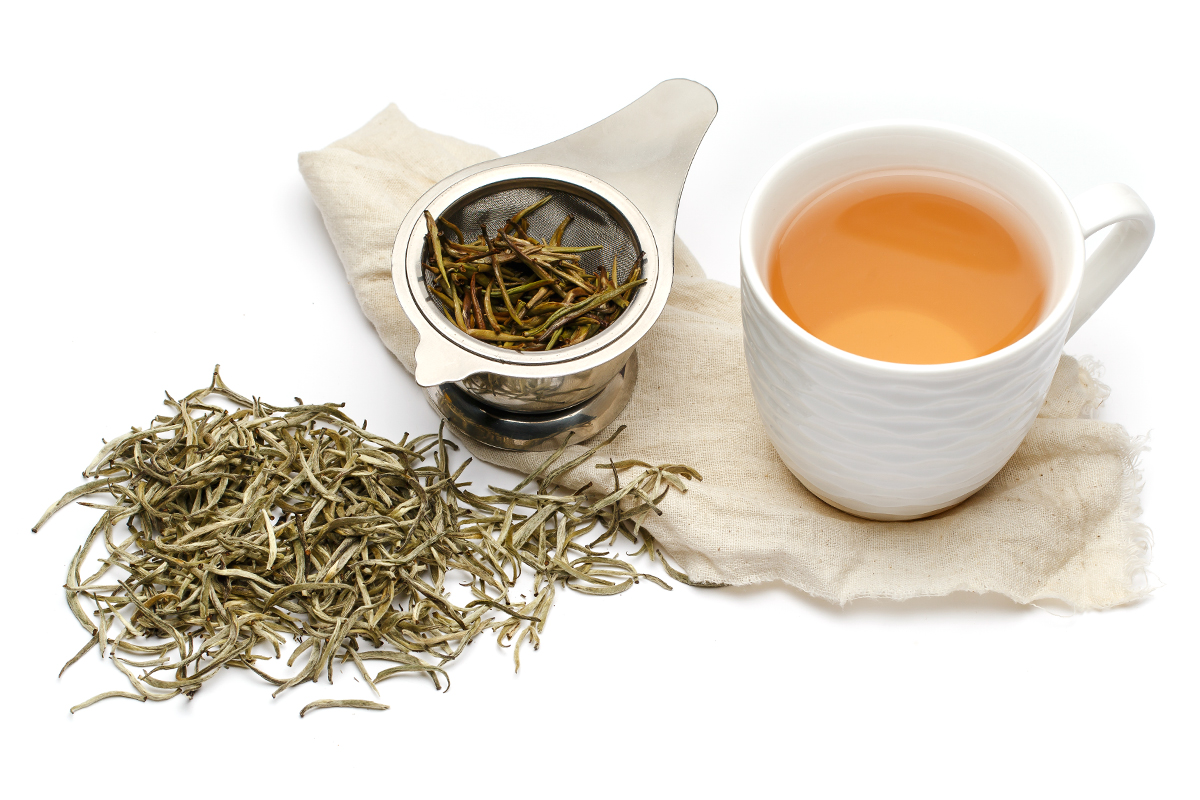
Chamomile tea
Calming & stress-relieving.
As the name suggests, chamomile tea is made of real chamomile flowers instead of Camellia sinensis. Therefore, it does not contain any caffeine content like white, oolong, green, or black tea. When brewed, they result in a very light yellow colored tea with a smooth aftertaste.
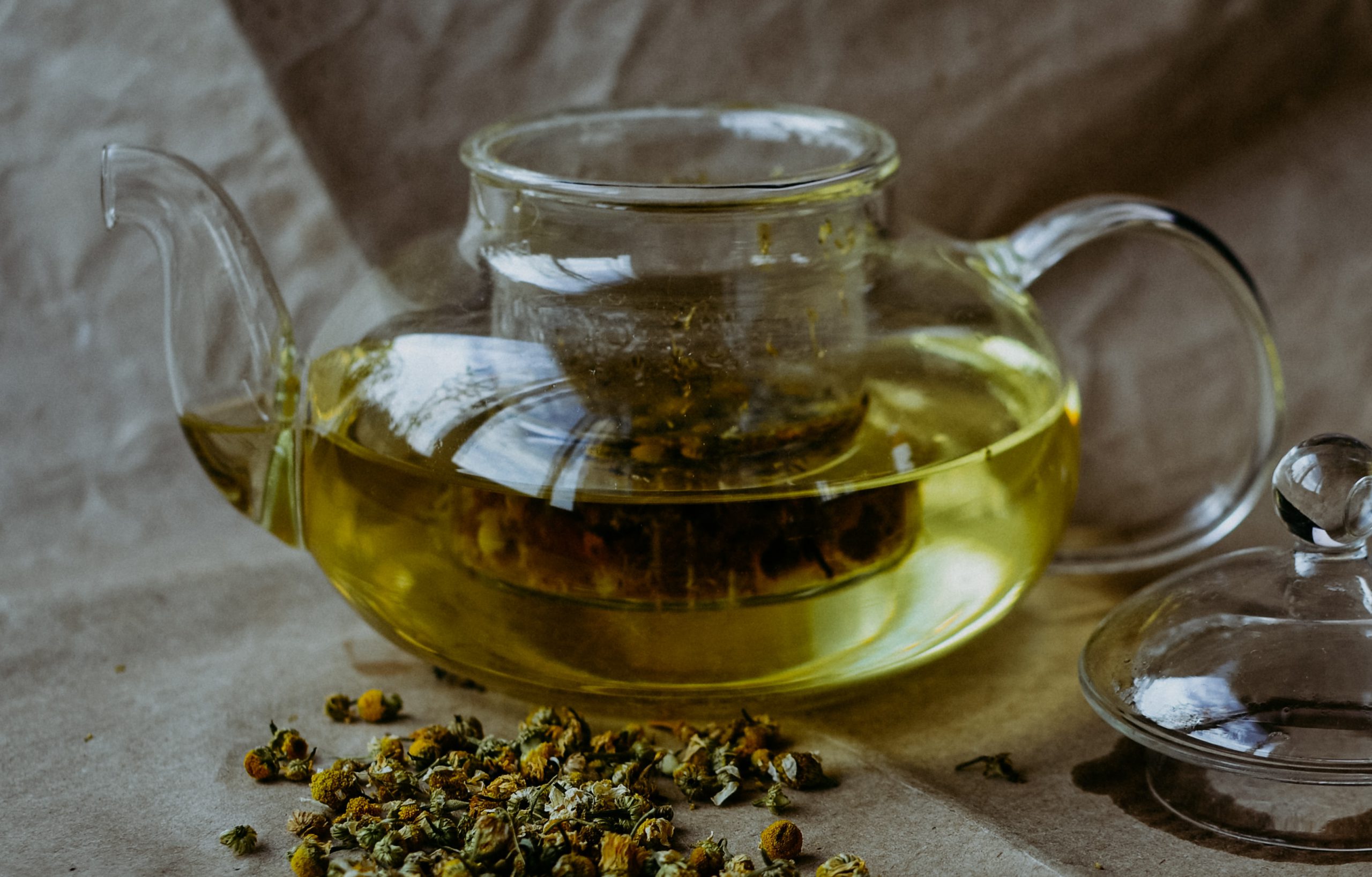
It has calming properties that could help with stress and anxiety. If you are looking to set the mood for relaxation, this is the tea for you. The absence of caffeine also makes it safe to drink before bed as well as throughout the day.
Ginger tea
Nausea relieving. Aid for morning sickness and vomiting.
Ginger is a root herb mainly used in cooking and mixology. It has a warming, slightly spicy taste, which brings warmth to the body. Ginger tea is worth a try when you feel nauseous, hungover, or go through morning sickness. You can make your own by grating or putting a few slices of fresh ginger into a mug with hot water for a few minutes, or buy it as dried, loose pieces or in tea bags.
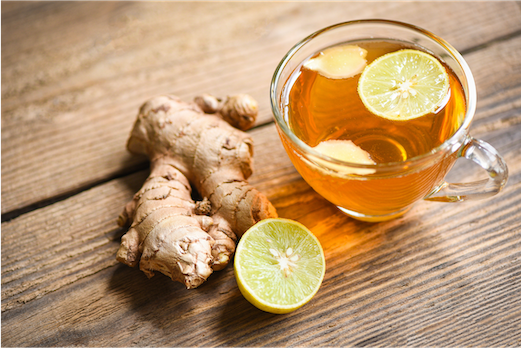
Peppermint tea
Promotes focus. Decreases bloating.
Peppermint is an herb commonly used as garnishes. It tastes fresh yet cooling when eaten raw. When steeped into tea, its menthol content is believed to be able to reduce bloating. In terms of improving focus, its cooling zing can help shake you up. Just like other herbal teas, it does not contain any caffeine.
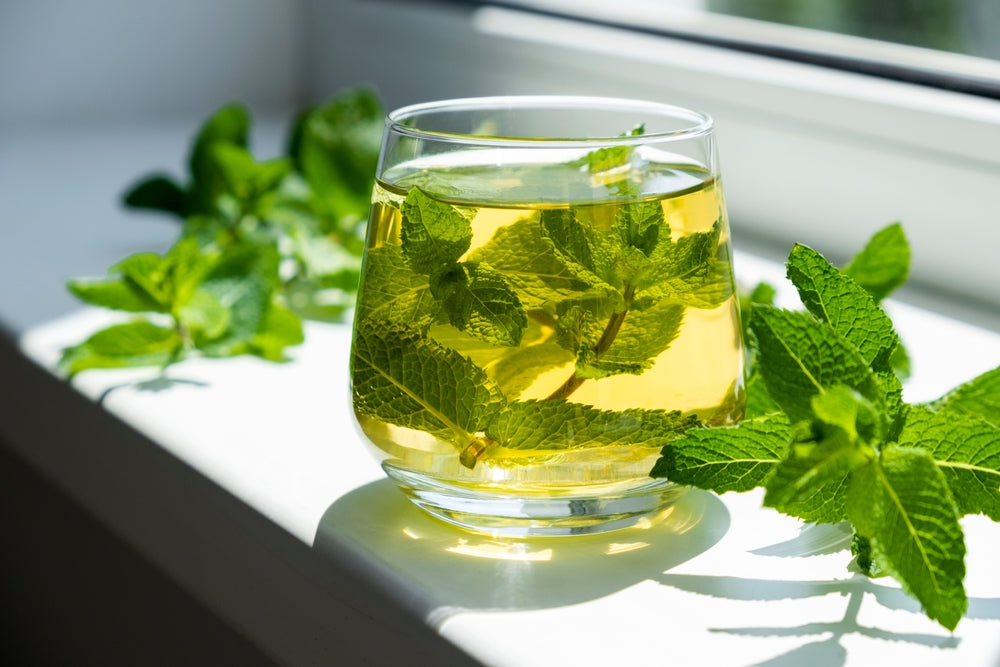
Recommendations
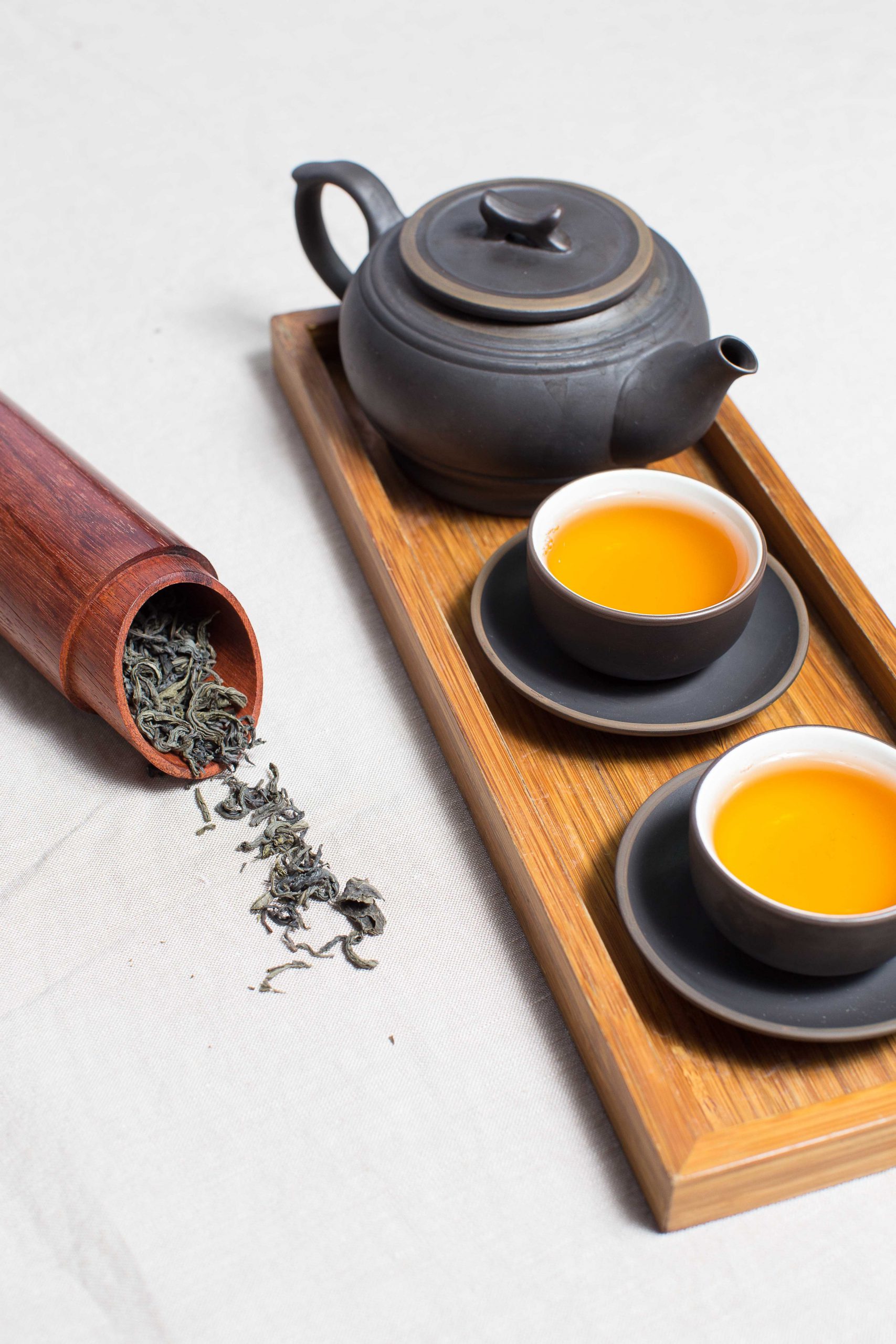
Even though tea can be highly beneficial to both our physical and mental health, nothing good comes out of overdoing it. Experts recommend limiting our consumption of tea to 3-4 cups, or 710-950 ml per day.
Drinking too much tea can potentially lead to aggravated acid reflux, nausea and disruption in iron absorption due to its tannin content —it’s what gives tea its bitter taste. In addition, the caffeine content in tea, though lesser than coffee, can quickly add up if drunk excessively. Too much caffeine can cause anxiety, restlessness, and disruption in our sleep cycle. Caffeine dependence can also happen if the habit of excessive tea consumption is continued over a long period of time.
Moreover, you should also beware of companies who sell “detox teas” with instant weight loss claims. They usually contain laxatives that can be harmful for your health. Those teas, just like many other fad diets, only offer short term results without regards to your long-term well being. The weight loss is usually not sustainable, because it is due to the tea’s laxative effect and not actual fat loss in your bod
